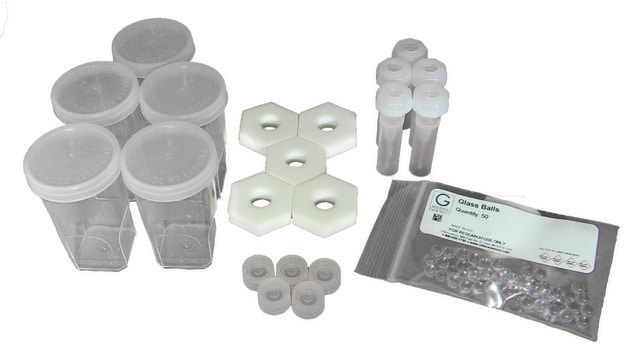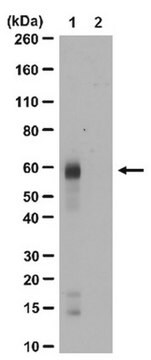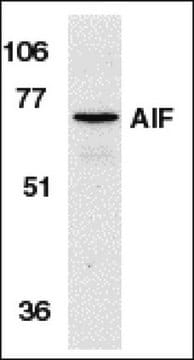SAB4502616
Anti-NF-κB p65 (Acetyl-Lys310) antibody produced in rabbit
affinity isolated antibody
Synonym(s):
NFKB3, RELA, TF65, nuclear factor NF-κ-B p65 subunit, p65
About This Item
Recommended Products
biological source
rabbit
Quality Level
conjugate
unconjugated
antibody form
affinity isolated antibody
antibody product type
primary antibodies
clone
polyclonal
form
buffered aqueous solution
mol wt
antigen 60 kDa
species reactivity
mouse, human
concentration
~1 mg/mL
technique(s)
ELISA: 1:40000
immunofluorescence: 1:100-1:500
immunohistochemistry: 1:50-1:100
western blot: 1:500-1:1000
NCBI accession no.
UniProt accession no.
shipped in
wet ice
storage temp.
−20°C
target post-translational modification
acetylation (Lys310)
Gene Information
human ... RELA(5970)
General description
RELA (v-rel avian reticuloendotheliosis viral oncogene homolog A) codes for the important constituent of the NF-κB (nuclear factor κ-B) complex. It is located on human chromosome 11q13.1. It is also called as nuclear factor κB subunit 3 (NFKB3).
Immunogen
Immunogen Range: 275-324
Application
Biochem/physiol Actions
Features and Benefits
Physical form
Disclaimer
Not finding the right product?
Try our Product Selector Tool.
Storage Class Code
10 - Combustible liquids
WGK
nwg
Flash Point(F)
Not applicable
Flash Point(C)
Not applicable
Choose from one of the most recent versions:
Certificates of Analysis (COA)
Don't see the Right Version?
If you require a particular version, you can look up a specific certificate by the Lot or Batch number.
Already Own This Product?
Find documentation for the products that you have recently purchased in the Document Library.
Our team of scientists has experience in all areas of research including Life Science, Material Science, Chemical Synthesis, Chromatography, Analytical and many others.
Contact Technical Service








